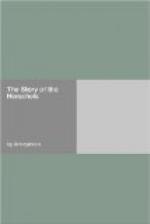In 1788 he married the widow of John Pitt, Esq., with whom he received a considerable fortune, and thus for the remainder of his life he was enabled to give himself up to his favourite pursuits unembarrassed by pecuniary anxieties. His marriage was in every respect a happy one, and effectually secured his domestic peace. By his wife he had an only son,—the late Sir John Herschel,—who worthily maintained the scientific dignity of his name.
It is said, by the highest of all authority, that a prophet is not honoured in his own country. But our astronomer was not without the reward of his work, even in his lifetime. The University of Oxford conferred upon him the illustrious honorary degree of D.C.L. In 1816 he received the Guelphic order of knighthood; and in 1820 he was chosen the first president of the Astronomical Society.
From his sister’s diary we gather a few particulars illustrative of his mode of life.
On the 4th of October 1806 she writes:—
“My brother came from Brighton. The same night two parties from the castle [Windsor] came to see the comet, and during the whole month my brother had not an evening to himself. As he was then in the midst of polishing the forty-foot mirror, rest became absolutely necessary after a day spent in that most laborious work; and it has ever been my opinion, that on the 14th of October his nerves received a shock of which he never got the better afterwards; for on that day (in particular) he had hardly dismissed his troop of men, when visitors assembled, and from the time it was dark till past midnight he was on the grass-plot, surrounded by between fifty and sixty persons, without having had time for putting on proper clothing, or for the least nourishment passing his lips.
“February 6th,
1807.—When I came to Slough to assist
my
brother in polishing
the forty-foot mirror, I found my
nephew[1] very ill with
an inflammatory sore throat and fever.
“February 9th.—Still very ill; and my brother obliged to go on with the polishing of the great mirror, as every arrangement had been made for that purpose.—Mem. I believe my brother had reasons for choosing the cold season for this laborious work, the exertion of which alone must put any man into a fever, if he were ever so strong.
“February 10th.—From
this day my nephew’s health kept on
mending.
“February 19th.—My nephew mending, but my brother not well.
“February 26th.—My brother so ill that I was not allowed to see him, and till March 8th his life was despaired of; and by March 10th I was permitted to see him, but only for two or three minutes, as he was not allowed to speak.
“March 22nd.—He
(Sir William) went for the first time into
his library, but could
only remain for a few moments.”




